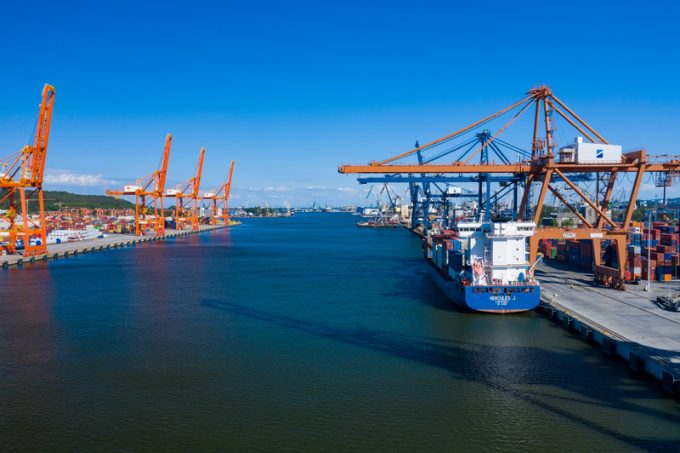Cargologicair sells off remaining stock and redundant staff can be paid
The remaining stock of Cargologicair, still under administration, is soon to be sold. The formerly ...
FDX: ABOUT USPS PRIVATISATIONFDX: CCO VIEWFDX: LOWER GUIDANCE FDX: DISRUPTING AIR FREIGHTFDX: FOCUS ON KEY VERTICALFDX: LTL OUTLOOKGXO: NEW LOW LINE: NEW LOW FDX: INDUSTRIAL WOESFDX: HEALTH CHECKFDX: TRADING UPDATEWMT: GREEN WOESFDX: FREIGHT BREAK-UPFDX: WAITING FOR THE SPINHON: BREAK-UP ALLUREDSV: BREACHING SUPPORTVW: BOLT-ON DEALAMZN: TOP PICK
FDX: ABOUT USPS PRIVATISATIONFDX: CCO VIEWFDX: LOWER GUIDANCE FDX: DISRUPTING AIR FREIGHTFDX: FOCUS ON KEY VERTICALFDX: LTL OUTLOOKGXO: NEW LOW LINE: NEW LOW FDX: INDUSTRIAL WOESFDX: HEALTH CHECKFDX: TRADING UPDATEWMT: GREEN WOESFDX: FREIGHT BREAK-UPFDX: WAITING FOR THE SPINHON: BREAK-UP ALLUREDSV: BREACHING SUPPORTVW: BOLT-ON DEALAMZN: TOP PICK

Russia’s invasion of Ukraine has impeded the logistics sector’s recovery from the pandemic – but without the lessons learned from Covid, the war could have generated a regional collapse.
Adam Komorowski, MD of Poland-based EAS International, said the 2020 lockdowns essentially provided supply chains a level of immunisation from external shocks, which he described as “a pandemic-induced vaccine”.
He told The Loadstar: “This ‘vaccine’ taught us how to swiftly identify and switch to alternative regions to serve as new sourcing locations for our clients. The war reactivated this need, but it is knowledge that allows supply chains to rapidly absorb negative phenomena.”
Mr Komorowski said that, for Poland, the major fallout had been rising transport costs, exacerbated by a fuel crisis, higher electricity prices and major congestion in domestic gateways resulting from the blockade of Ukraine’s ports – not to mention the closure of air routes over Ukrainian territory.
“But the Covid lessons have dampened all this as, during the pandemic, supply chains of every company underwent extreme tests,” he explained.
“Some did not withstand the trial, others modified to adapt. Companies had to deal with limited availability from sourcing locations, followed by extended transit times and significant increases in costs.”
Russia was Poland’s second-largest export market before Putin sent troops into Ukraine in February 2022, with more than $7.5bn shipped there annually.
For Mr Komorowski, the loss of not one, but three major markets for Polan – the sanctioned Russia and Belarus and an effective suspension of trade with Ukraine – does not seem to have dampened his faith in his country’s capacity to bounce back swiftly.
He said: “The outbreak of war served as an accelerator for market strategy changes.”
Comment on this article